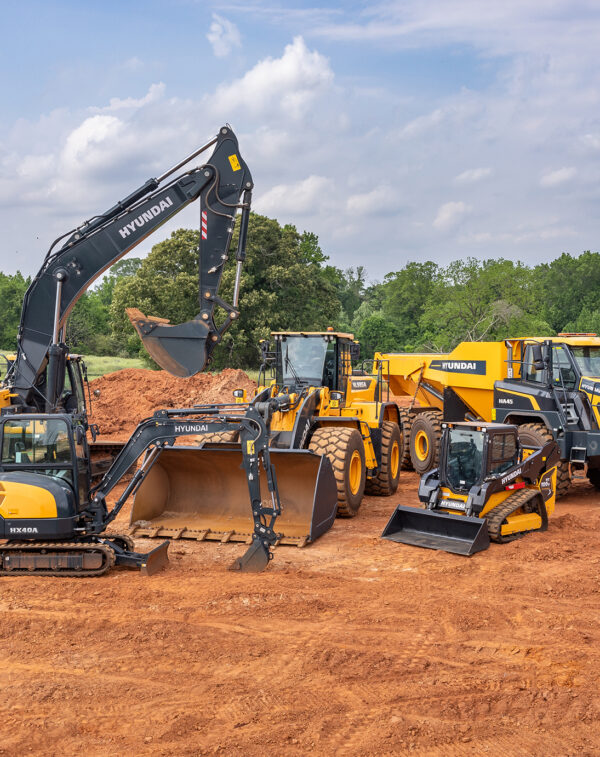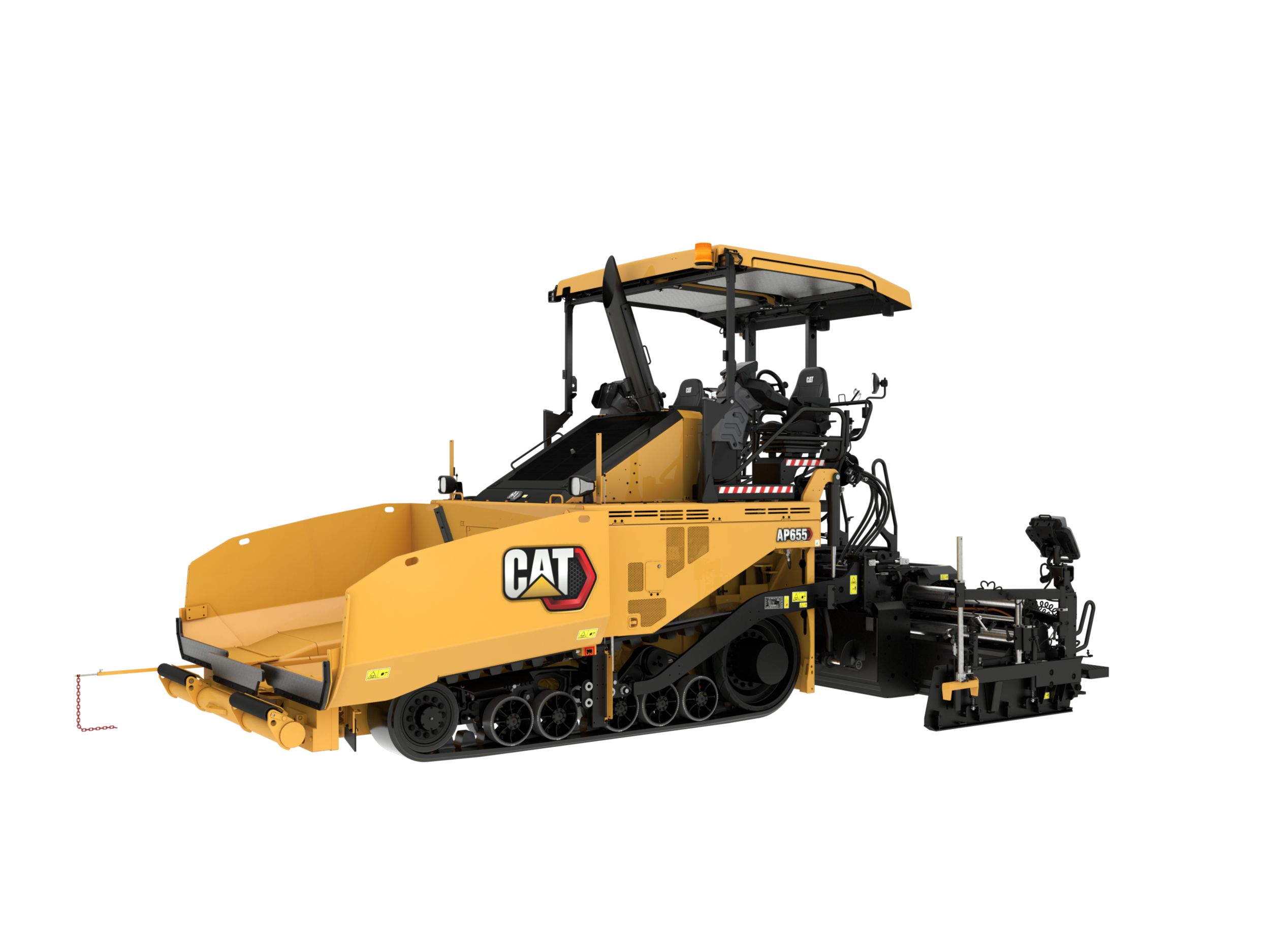Heavy Equipment Rental in Tuscaloosa, AL: Locate the Right Tools for Any Type Of Task
Heavy Equipment Rental in Tuscaloosa, AL: Locate the Right Tools for Any Type Of Task
Blog Article
Discovering the Financial Benefits of Renting Building Tools Compared to Possessing It Long-Term
The decision between renting out and possessing building and construction equipment is pivotal for monetary management in the industry. Renting out deals immediate price savings and operational flexibility, enabling firms to assign resources much more efficiently. On the other hand, possession features considerable lasting financial commitments, consisting of maintenance and devaluation. As contractors consider these alternatives, the influence on money flow, project timelines, and innovation access comes to be significantly significant. Comprehending these nuances is necessary, particularly when thinking about just how they align with certain project needs and financial methods. What factors should be prioritized to make sure optimal decision-making in this complex landscape?

Expense Comparison: Renting Out Vs. Having
When reviewing the financial effects of leasing versus owning building and construction equipment, a comprehensive price comparison is crucial for making notified choices. The option between owning and renting can considerably affect a company's profits, and recognizing the connected prices is important.
Renting construction tools normally includes lower upfront prices, allowing services to allot capital to other functional demands. Rental contracts commonly include flexible terms, making it possible for companies to accessibility progressed machinery without long-lasting commitments. This versatility can be particularly helpful for temporary tasks or rising and fall work. Nonetheless, rental prices can collect with time, possibly exceeding the cost of ownership if tools is required for a prolonged period.
Alternatively, possessing building and construction tools requires a substantial preliminary financial investment, along with recurring expenses such as depreciation, financing, and insurance. While ownership can bring about long-term savings, it also links up funding and might not give the very same level of flexibility as renting. In addition, owning equipment necessitates a dedication to its use, which may not always align with project demands.
Inevitably, the choice to lease or have ought to be based upon a detailed evaluation of specific job demands, financial capability, and lasting strategic goals.

Maintenance Expenditures and Duties
The selection between owning and renting out building devices not only includes financial factors to consider yet likewise includes recurring maintenance costs and duties. Having devices needs a considerable dedication to its maintenance, which consists of regular examinations, fixings, and possible upgrades. These obligations can swiftly gather, bring about unanticipated expenses that can stress a budget.
In comparison, when renting out equipment, upkeep is generally the responsibility of the rental firm. This arrangement enables service providers to stay clear of the economic burden related to wear and tear, along with the logistical challenges of organizing repairs. Rental agreements usually include arrangements for upkeep, suggesting that professionals can concentrate on completing jobs instead of fretting about equipment problem.
Additionally, the varied variety of equipment offered for rental fee enables firms to choose the most up to date versions with sophisticated technology, which can enhance effectiveness and productivity - scissor lift rental in Tuscaloosa, AL. By selecting rentals, services can avoid the long-term responsibility of equipment devaluation and the linked upkeep headaches. Inevitably, reviewing maintenance costs and duties is crucial for making an educated choice regarding whether to lease or possess building equipment, considerably affecting total project costs and functional efficiency

Depreciation Influence On Ownership

A significant variable to consider in the choice to have building devices is the impact of devaluation on general ownership costs. Depreciation represents the decrease in worth of the equipment dig this with time, affected by variables such as use, deterioration, and innovations in innovation. As equipment ages, its market value lessens, which can substantially impact the owner's economic placement when it comes time to trade the tools or sell.
For building business, this depreciation can equate to considerable losses if the devices is not used to its fullest possibility or if it lapses. Proprietors should represent devaluation in their financial projections, which can cause higher total costs contrasted to leasing. In addition, the tax ramifications of depreciation can be complicated; while it might give some tax advantages, these are often balanced out by the truth of minimized resale worth.
Ultimately, the worry of depreciation emphasizes the relevance of comprehending the lasting financial commitment entailed in possessing building and construction tools. Business must thoroughly assess exactly how commonly they will certainly use the devices and the prospective financial influence of depreciation to make an informed decision regarding ownership versus renting.
Monetary Flexibility of Renting Out
Leasing construction devices supplies considerable economic versatility, allowing companies to allot sources more effectively. This versatility is especially crucial in a market defined by rising and fall task needs and varying work. By opting to rent out, services can stay clear of the considerable resources expense required for acquiring devices, preserving capital for various other operational requirements.
Furthermore, renting devices makes it possible for business to tailor their devices selections to details project demands without the long-lasting commitment related to possession. This indicates that organizations can quickly scale their devices stock up or down based on expected and current project demands. Subsequently, this adaptability reduces the risk of over-investment in machinery that might become underutilized or out-of-date in time.
An additional financial benefit of renting is the capacity for tax obligation advantages. Rental settlements are usually considered operating costs, enabling instant tax deductions, unlike devaluation on owned and operated devices, which is spread over numerous years. scissor lift rental in Tuscaloosa, AL. This prompt expenditure acknowledgment can further improve a company's money position
Long-Term Job Factors To Consider
When reviewing the long-lasting requirements of a building and construction business, the decision in between leasing and possessing equipment ends up being more complicated. Key variables to consider include task duration, frequency of usage, and the nature of upcoming tasks. For tasks with prolonged timelines, buying equipment might seem beneficial as a useful reference result of the capacity for lower general expenses. However, if the tools will not be used consistently throughout jobs, owning may cause underutilization and unneeded expenditure on insurance, maintenance, and storage space.
In addition, technological advancements present a substantial factor to consider. The building sector is advancing swiftly, with new equipment offering boosted effectiveness and safety attributes. Renting out enables business to access the current innovation without committing to the high in advance expenses connected with buying. This adaptability is especially beneficial for companies that deal with diverse Go Here tasks requiring various sorts of equipment.
Furthermore, financial stability plays a crucial role. Owning equipment commonly requires significant capital expense and devaluation issues, while renting out enables for even more predictable budgeting and capital. Inevitably, the choice in between renting out and owning must be lined up with the strategic purposes of the building business, considering both expected and current task demands.
Conclusion
To conclude, leasing building and construction tools provides substantial financial advantages over long-term possession. The lessened ahead of time expenses, removal of maintenance duties, and avoidance of devaluation contribute to boosted cash flow and economic adaptability. scissor lift rental in Tuscaloosa, AL. Moreover, rental settlements function as instant tax deductions, better benefiting specialists. Eventually, the choice to rent out as opposed to own aligns with the dynamic nature of construction projects, allowing for flexibility and access to the most up to date tools without the monetary problems related to possession.
As devices ages, its market value decreases, which can substantially impact the proprietor's economic setting when it comes time to offer or trade the tools.
Renting building devices offers significant economic flexibility, allowing business to allot resources a lot more effectively.In addition, renting out tools allows business to tailor their tools choices to specific project requirements without the long-term commitment associated with possession.In conclusion, leasing construction tools uses considerable financial benefits over long-lasting ownership. Inevitably, the decision to rent out instead than own aligns with the vibrant nature of building tasks, permitting for versatility and access to the most current tools without the monetary worries connected with ownership.
Report this page